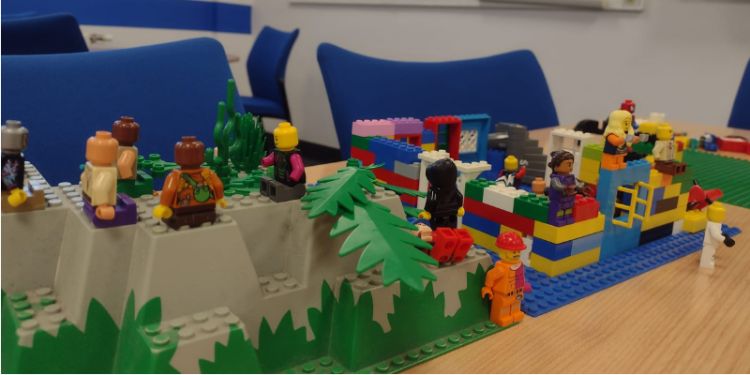How research can bring us closer to decolonising the curriculum

In the School of Geography, Dr Laura Loyola-Hernández seeks to understand which obstacles are in the way for fellow staff to decolonise the curriculum.
Dr Loyola-Hernández, Lecturer in Human Geography and Lite Fellow, recently spoke at both the European Decolonising Development Network and the University of Manchester roundtable, “Possibilities and Impossibilities of an Epistemic Justice”, about her latest research.
These events coincided with the announcement of the Educational Review’s Article of the Year Award for 2022, which honoured a paper on which Dr Loyola-Hernández was the lead author: “Resilience, advocacy and scholar-activism: responding to COVID-19 in Kenyan, Mexican and British universities”.
The obstacles to decolonising the Faculty of Environment
Dr Loyola-Hernández’s latest research is encapsulated in the report “Impact of decolonising initiatives and practices in the Faculty of Environment” where she is the lead author alongside School of Geography colleague Dr Arjan Gosal.
They investigate the mindset of the Faculty of Environment staff at the University of Leeds and reveal their perception of and obstacles to decolonising the faculty.
The research project, which included a survey of over 100 members of the faculty, is the largest of its kind so far.
It found that most staff agree that decolonisation is applicable to their role, which suggests that if their obstacles were removed, they would act to decolonise their practice.
However, they identified several challenges, from not knowing where to begin, to concerns that individual module, staff or student needs would be ignored in a blanket approach to decolonisation.
At the European Decolonising Development Network, Dr Loyola-Hernández discussed what this observation highlights: the need for nuanced consideration of what decolonisation means for each faculty and school of the university.
The meaning of decolonisation in higher education
The meaning of decolonisation is something that Dr Loyola-Hernández wants to make clear in her work.
There is a misconception that decolonisation is the same as equality, diversity and inclusion (EDI) work.
She explains, “The report signals the dangers of this, as decolonisation runs the risk of being diluted from its more inherit social justice context.”
Dr Loyola-Hernández describes decolonisation as “transforming the material realities we live in”; for example, working to dismantle systems like capitalism, neoliberalism, colonialism and other forms of inequalities.
In the report, the researchers propose ways that such inequalities can be addressed at institutional, faculty, school and individual levels.
The suggestions include reparations in the form of scholarships and funding for Black students, financial and other support for grassroots organisations working towards equality, and using inclusive language at the individual level.
We owe it to our students and colleagues who until now have felt that there is no place for them at university. We must and can do better for them.
One way in which Dr Loyola-Hernández is working to diversify the curriculum is through her Lite project, community-led pedagogies.
This initiative encourages underrepresented students in the Faculty of Environment to express their ideal university experience, by, for example, building it out of Lego.
The project will also understand where these students feel safest at the University of Leeds and deliver workshops and community activities.
On her future aspirations, Dr Loyola-Hernández said, “I would love to share experiences and knowledge with community organisers, activities and academics across disciplines and geopolitical landscapes.
“We have much to learn from each other and I hope to organise an event where such exchanges are possible.”




